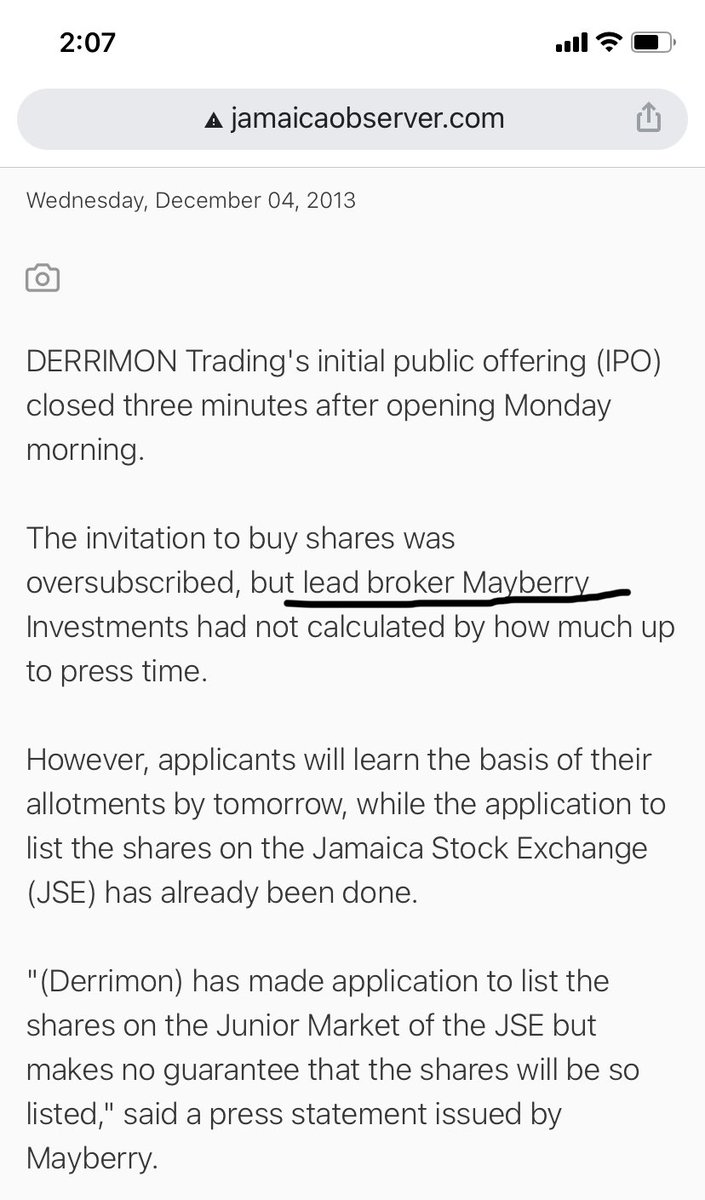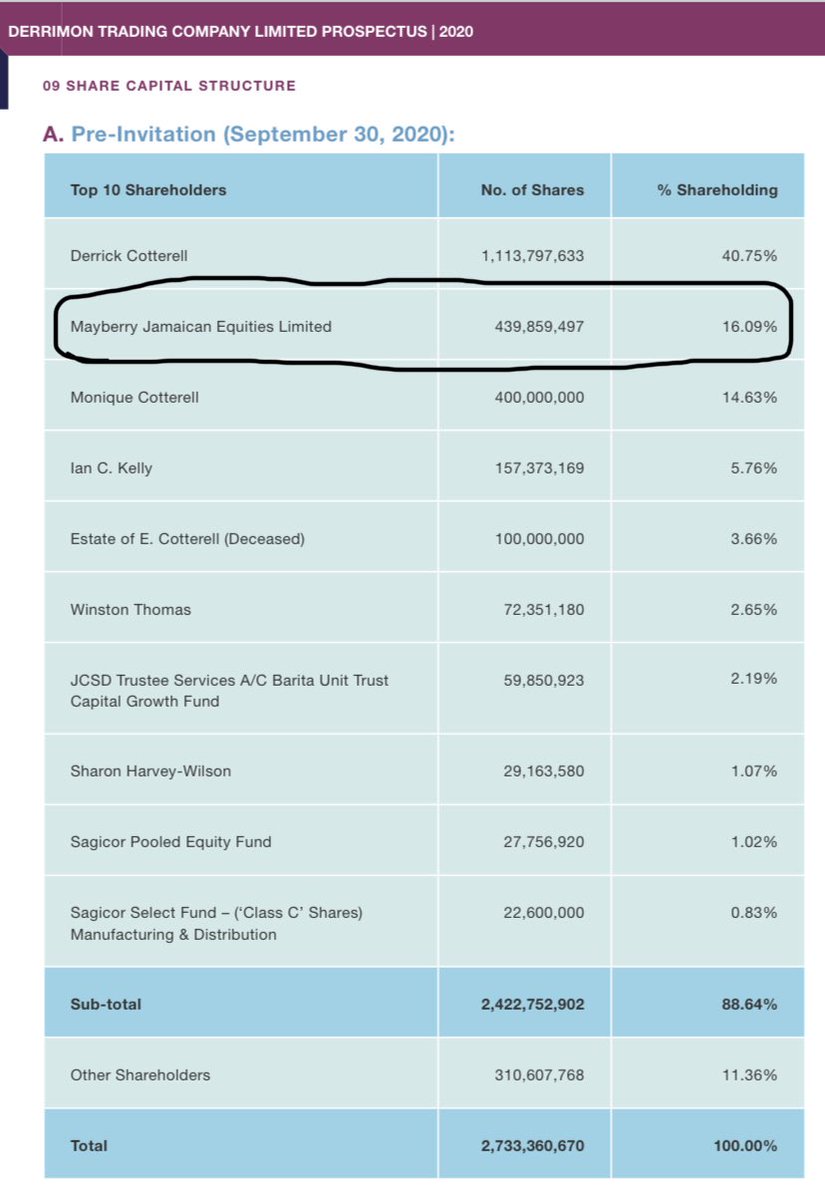
1. Creative Risk Reduction Measures
The 3 Principles to Build Personal Wealth Are:
1. Make Money
2. Save Money
- Emergency Savings - to handle everyday, relatively minor non-budgeted expenses (replacing tech devices, buying meds, replace a car part, etc.).
#FinanceTwitterJa
The 3 Principles to Build Personal Wealth Are:
1. Make Money
2. Save Money
- Emergency Savings - to handle everyday, relatively minor non-budgeted expenses (replacing tech devices, buying meds, replace a car part, etc.).
#FinanceTwitterJa
2. Save Money continued
- Insurance - protect your savings and investments from major non-budgeted expenses (car accidents, hospital visits, natural disasters, etc.)
3. Invest Money
- Insurance - protect your savings and investments from major non-budgeted expenses (car accidents, hospital visits, natural disasters, etc.)
3. Invest Money
For a country it's similar. They make money from tax revenue. Savings have to be intentionally set aside (see the $90B GOJ used last year), and insurance needs to be acquired to handle shocks (e.g. weather or commodity shocks).
Mitigation Methods for Disasters (aka 'negative externalities')
- Self-Insure - i.e. set aside funds every yr specifically to offset the cost of a specific event (this is very hard to do, because of the large sums involved — i.e. this is the equivalent of 'saving'...
- Self-Insure - i.e. set aside funds every yr specifically to offset the cost of a specific event (this is very hard to do, because of the large sums involved — i.e. this is the equivalent of 'saving'...
to replace your car in case of a write off).
- Buy Normal Insurance - pay a premium into a pool of funds and if you need it, you draw down on it. Last year GOJ got $500M JMD for damages related to hurricanes last year.
jamaicaobserver.com/latestnews/Jam…
- Buy Normal Insurance - pay a premium into a pool of funds and if you need it, you draw down on it. Last year GOJ got $500M JMD for damages related to hurricanes last year.
jamaicaobserver.com/latestnews/Jam…
- Buy A New Type Of Insurance (Catastrophe Bond) - convince a pool of investors to assume the risk of a major catastrophe (i.e. if a major hurricane or natural disaster hits, they payout at the face value of the bond) in exchange for small payments periodically.
GOJ has done all 3.
- Self-Insure - They started bolstering the 'Contingencies Fund' with up to $4B over the prior 2 years (up from $100M for the 30 yrs prior). They used these funds in the early days of the pandemic for the CARE Programme while other resources were marshalled.
- Self-Insure - They started bolstering the 'Contingencies Fund' with up to $4B over the prior 2 years (up from $100M for the 30 yrs prior). They used these funds in the early days of the pandemic for the CARE Programme while other resources were marshalled.
- Normal Insurance - They have been contributing to a Caribbean Catastrophe Insurance Fund (CCRIF) for disasters — which is what the $500M JMD payout came from for damage from Zeta & Eta.
- Catastrophe Bond (Cat Bond) - @drnigelclarkeja & his team have been working on a Cat Bond solution since 2020 and the first instance seems that it will be ready in time for the 2021 hurricane season. It is the design of this bond that I find creative and innovative.
A 3-year Cat Bond funded by international investors.
In the event that a hurricane causes damage above some threshold, Jamaica gets the principal amount of the bond.
JA pays a premium every year for 3 years to these investors for the potential payout; $1.1B in the upcoming FY.
In the event that a hurricane causes damage above some threshold, Jamaica gets the principal amount of the bond.
JA pays a premium every year for 3 years to these investors for the potential payout; $1.1B in the upcoming FY.
All of JA's premia are funded by bilateral grants from the US, Canada, UK & Germany.
So, to recap, for the next 3 years any major hurricane that wreaks havoc on Jamaica and causes damage greater than the threshold stated in the CAT bond, GOJ gets a lump sum payment...
So, to recap, for the next 3 years any major hurricane that wreaks havoc on Jamaica and causes damage greater than the threshold stated in the CAT bond, GOJ gets a lump sum payment...
that's the principal of the bond. In years past, this risk was more or less fully borne by GOJ. When that happens, GOJ has to borrow to pay for those damages. In this instance, that principal amount is completely covered in advance and the premium payments that JA has to make...
for the first 3 years are completely covered. So GOJ removed major hurricane financial risk for the next 3 years at effectively almost no cost to the taxpayer. Any damages that happen below the threshold will presumably be funded by both the replenished Contingency Fund and any..
payouts from CCRIF. In 3 years, our debt-to-GDP ratio should be lower, so we should be able to manage those premiums on our own (or perhaps the MoF then will seek more grant funding for that then).
This entire hurricane risk mitigation strategy is truly good policy.
They used GOJ funds where available, they leveraged grants to tap international capital markets and structured a deal that is net positive to Jamaica.
Very creative. Just brilliant.
Good policy truly matters.
They used GOJ funds where available, they leveraged grants to tap international capital markets and structured a deal that is net positive to Jamaica.
Very creative. Just brilliant.
Good policy truly matters.
Note that this thread is part of a larger thread about the #BudgetSpeech2021
So if you read this out of context, it may not make complete sense.
So if you read this out of context, it may not make complete sense.
See the parent thread below.
https://twitter.com/marcgayle/status/1371644573240418305
• • •
Missing some Tweet in this thread? You can try to
force a refresh




